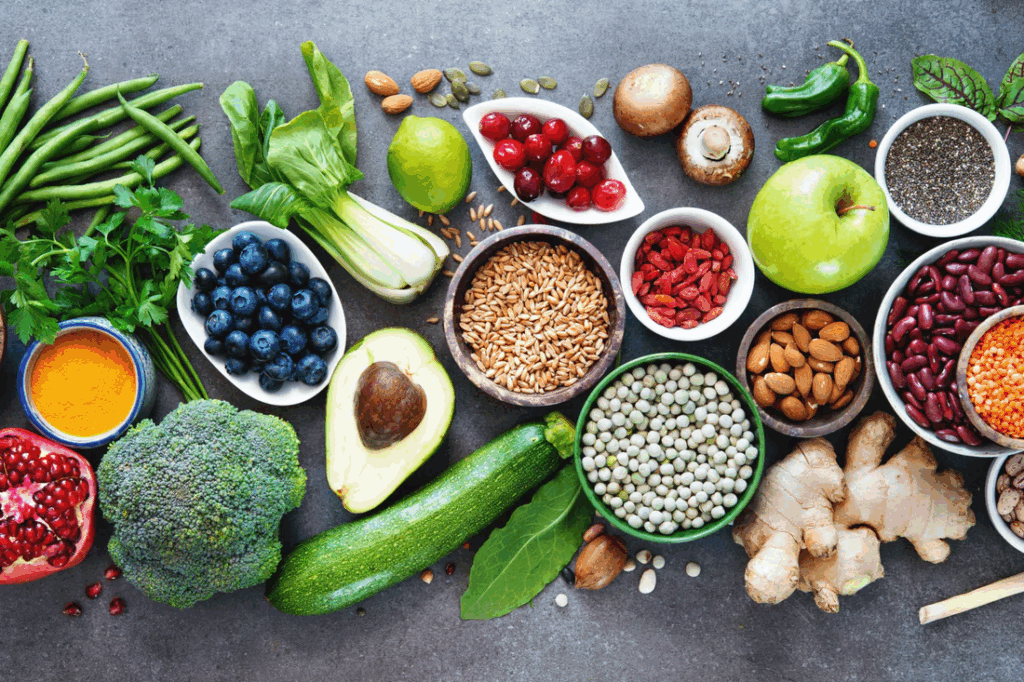Everyone experiences occasional digestive issues like an upset stomach, gas, heartburn, or constipation. However, when these symptoms become frequent, they can disrupt daily life. The good news is, you can make several diet and lifestyle changes to improve your digestion naturally. Here are 11 effective ways to support your digestive health:
1. Eat Whole, Unprocessed Foods

Whole foods — those in their natural or minimally processed state — are excellent for gut health. They provide essential nutrients like fiber, vitamins, and minerals while avoiding added sugars and artificial ingredients. These nutrients promote a balanced gut microbiome, which supports digestion, immunity, and hormonal balance.
2. Increase Your Fiber Intake

Fiber is key to maintaining regular bowel movements and a healthy gut. There are two types of fiber:
- Insoluble Fiber: Found in whole grains and vegetables, it adds bulk to stool and helps move food through your digestive system, reducing bloating and discomfort.
- Soluble Fiber: Found in fruits, seeds, and beans, it supports nutrient absorption and feeds the beneficial bacteria in your gut. This helps reduce inflammation and promotes gut health.
3. Add Healthy Fats to Your Diet

Healthy fats from sources like avocados, nuts, and fatty fish support digestion by stimulating bile production, which aids in breaking down fats. These fats are also vital for absorbing fat-soluble vitamins (A, D, E, and K), which help maintain a healthy gut lining and immune system.
4. Drink Plenty of Fluids

Water is essential for digestion. It helps dissolve food, activate digestive enzymes, and transport nutrients throughout the body. Staying hydrated also supports the gut microbiome balance and assists in eliminating waste and toxins. Dehydration can lead to digestive issues like constipation and bloating.
5. Manage Stress

Stress can disrupt digestion due to the gut-brain axis, a communication pathway between your brain and gut. When stressed, your body’s “fight or flight” response can slow digestion, cause bloating, and alter the gut microbiome. Chronic stress may lead to digestive problems such as constipation, diarrhea, or increased intestinal permeability.
6. Practice Mindful Eating

Mindful eating encourages slowing down and focusing on the eating experience. This helps reduce stress and promotes digestion by stimulating saliva production, which contains enzymes that start the digestive process. Eating slowly also allows your stomach to properly process food before it enters the digestive system.
7. Chew Your Food Thoroughly

Chewing food well is essential for proper digestion. It breaks food down into smaller particles, increasing surface area and making it easier for digestive enzymes to do their job. Proper chewing also allows food to mix with saliva, which contains enzymes that aid in the breakdown of nutrients.
8. Get Moving

Physical activity helps digestion by improving blood flow to the digestive organs, enhancing the movement of food through the gastrointestinal tract. Regular exercise promotes gastrointestinal motility, supports immune responses, and improves microbiome diversity, which is beneficial for overall gut health.
9. Listen to Your Body

If you’re experiencing digestive symptoms, it’s important to pay attention to what your body is telling you. Some symptoms may point to underlying conditions that require medical attention. Early detection can help identify issues like food intolerances, gastrointestinal diseases, or infections.
10. Consider Lifestyle Changes

Certain habits can negatively affect your digestion, including:
- Smoking: Smoking disrupts the gut microbiome, slows digestion, and weakens the muscles that help food move through your digestive tract.
- Alcohol: Excessive alcohol consumption irritates the stomach lining and increases stomach acid production, which can lead to ulcers and other digestive issues.
- Late-Night Eating: Eating close to bedtime can interfere with digestion, as your metabolism slows down during sleep, making it harder to break down food and absorb nutrients.
11. Incorporate Gut-Supporting Nutrients

Certain nutrients can help maintain digestive health:
- Probiotics: These beneficial bacteria promote a balanced gut microbiome, supporting digestion and overall gut function.
- Glutamine: This amino acid supports the intestinal barrier, aiding in cell growth and repair, while reducing inflammation in the digestive tract.
- Zinc: Zinc plays a key role in maintaining the integrity of the gut lining and helps reduce inflammation.
Takeaway
Making simple diet and lifestyle changes — such as eating whole foods, managing stress, staying hydrated, and avoiding late-night meals — can significantly improve your digestion. Listen to your body, stay consistent with healthy habits, and seek medical advice if needed to address any persistent digestive issues.
Also Read : 10 Healthy Snacks for Your Kid’s Lunch Box That They’ll Actually Eat



